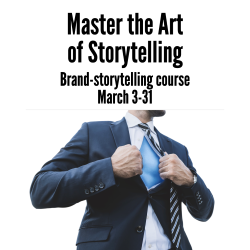Feature headlines easier to understand, more memorable
Two professors from Texas A&M University and one from the University of the Andes aimed to find out whether concrete or abstract information was more:

- Understandable
- Memorable
- Interesting
First, the professors crafted a series of passages. Each passage was about 56 words long; all were written at about the same level of readability. Half the passages were abstract; the other half, concrete.
Next, they wrote a series of abstract and concrete headlines, including:
Abstract headline | Concrete headline |
| Domestic Devices | Countertop Gadgets |
| Preferred Items | Favorite Junk |
| The Laws of Lift | How a Plane Flies |
| A Science Find | Jungles in Ice |
| Mortal Justice | Death Penalty |
Then they asked 40 graduate students to read the headlines and rate them on such qualities as how interesting and easy to understand they were.
The students rated the concrete headlines much more interesting and understandable.
Concrete headlines, copy more memorable.
Finally, the researchers had another group of graduate students read the copy and headlines. After time had passed, researchers asked the students what they’d read.
The students remembered:
- Concrete text with concrete headlines best of all
- Concrete text with abstract headlines second best
- Abstract text, regardless of headline, least
In fact, the students remembered the concrete text 70% better than the abstract text.
Bottom line: Concrete material is more understandable, more interesting and easier to remember than abstract information.
How can you surprise and delight readers with clever headlines?
____
Source: Mark Sadoski, Ernest T. Goetz and Maximo Rodriguez, “Engaging Texts: Effects of Concreteness on Comprehensibility, Interest, and Recall in Four Text Types,” Journal of Educational Psychology 92, 2000, pp. 85-95
How can you surprise and delight readers?
Neurologists call it “the pleasure of the text,” the reward readers get from figuring out figurative language. (It can be quite a reward: If your wordplay is funny enough, your readers’ brains even deliver a little dose of dopamine.) 
Learn to tap wordplay’s superpowers at Master the Art of Storytelling, our business-storytelling workshop starting March 3.
There, you’ll learn to flip phrases; compress details; sub sound-alikes; list, rhyme and twist — even coin new words with free online tools that do the work for you. You’ll get inspired by some of the world’s most creative headlines. And you’ll polish your skills in a wordplay workout, with recipes from anagram to oxymoron.
Save up to $100 with our group discounts.
